Data Analytics & Generative AI Program
August 15, 2024 2025-08-14 19:43Data Analytics & Generative AI Program




Data Analytics with Generative AI Course | Modern Analytics Training

Combine Traditional Analytics with AI-Powered Insights
Why Join Data Analytics & Generative AI Program ?
Comprehensive Coverage
Industry-Relevant Skills
Hands-On Learning
Career Growth
Upcoming Batch:-
7th September 2025
14th September 2025
Corporate Training
Data Analytics & Generative AI Program Overview
This program helps participants to be proficient in both data analysis and AI. The program includes Advanced Excel, Python, Basic Statistics, SQL & data visualization with Tableau/Power BI. It also delves into Generative AI technologies such as Hugging Face Transformers, LLMs and DALL-E 2, MidJourney, GANs, RAG, LangChain to give you a strong foundation in data management and cutting-edge advanced AI tools.
ENROLL NOW & BOOK YOUR SEAT AT FLAT 50% WAIVER ON FEE
Batch Schedule
| Batch | Batch Type |
|---|---|
| Online Live Instructor Led Session | Full-Time |
| Online Live Instructor Led Session | Part-Time |
Regional Timings
| Region | Time |
|---|---|
| IST (India Standard Time) | 09:00 PM – 12:00 AM |
| Bahrain, Qatar, Kuwait, Saudi Arabia | 06:30 PM – 09:30 PM |
| UAE / Oman | 07:30 PM – 09:00 PM |
Talk to our Corporate training advisor
Data Analytics & Generative AI Program Objectives
The Program is aimed at offering essential knowledge in the key field areas related to data analysis, Python programming and statistical techniques useful for decision making based on data. This meant they wanted me to work more on SQL for database management and Tableau for data visualization. Further, the course also exposes learners to state-of-the-art Generative AI technologies such as: Hugging Face Transformers, LLMs, DALL-E 2, GANs so they could use more advanced tools in their projects. The programme aims to make the participants well versed with data analytics and AI.
Why Learn Data Analytics & Generative AI Program?
Master Python & Data Analysis
Explore Advanced AI
Hands-On with Generative AI
Innovate with LLMs & LangChain
Enhance Communication
Drive Innovation
Program Advantages
Data Analytics & Generative AI Program Certification

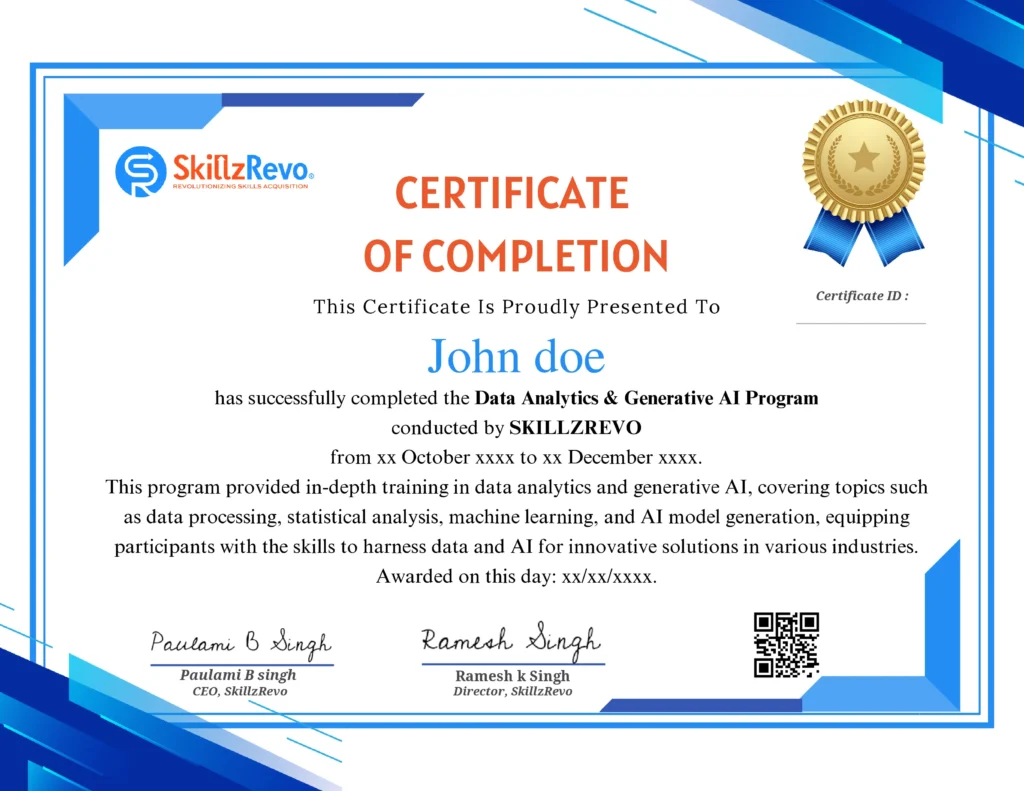
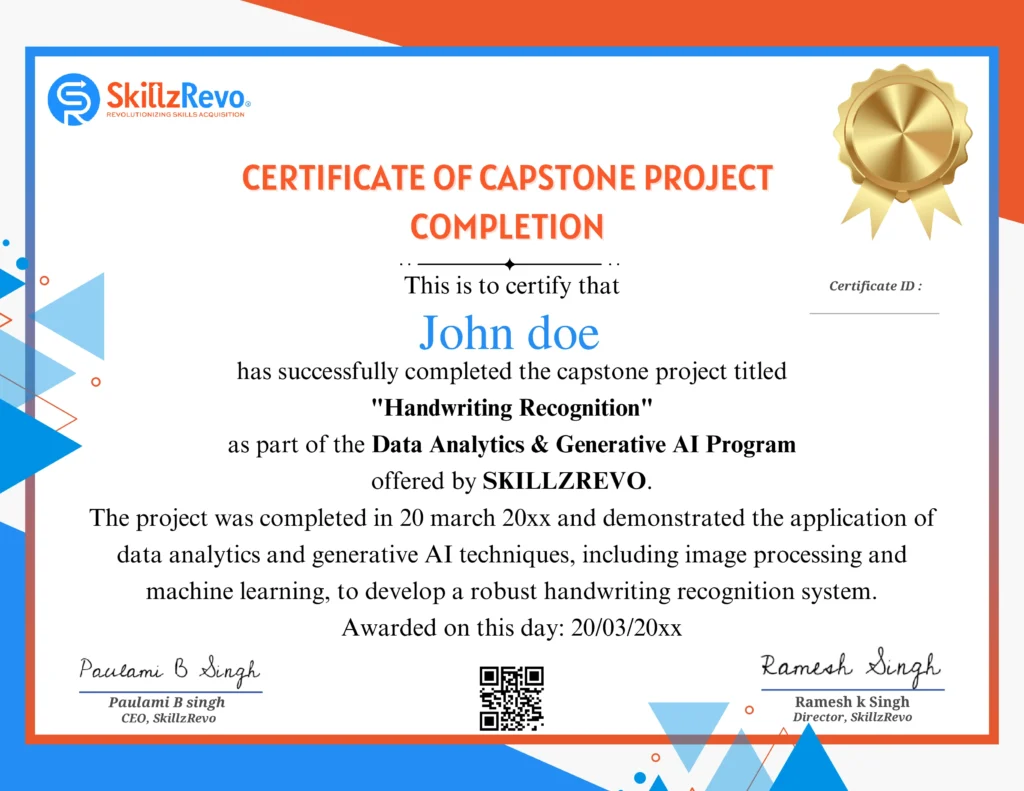
Data Analytics & Generative AI Program Learning Path/Curriculum
Lecture 01: Introduction to Python, Why Python, Variables, Data Types, Type Casting, Strings, Indexing
Lecture 02: Operators and Conditional Statements, Looping Statements and its Control Statement
Lecture 03: Lambda Functions, *args, **kwargs, Functions
Lecture 04: Data Structures - List, Tuple, and List Comprehensions
Lecture 05: Data Structures - Set and Dictionaries
Lecture 06: Classes, Objects and Constructors, Inheritance
Lecture 07: Polymorphism, Abstraction and Encapsulation
Lecture 08: Connecting to Databases, Establishing Connections to Databases, Executing SQL Queries, ORM (Object-Relational Mapping), Working with NoSQL Databases
Lecture 09: Introduction to NumPy and Pandas
Lecture 10: Introduction to Seaborn and Matplotlib
Lecture 11: Introduction to Statistics, Descriptive Statistics, Sample, Population, Measures of Central Tendency, Standard Deviation
Lecture 12: Variance, Range, IQR, Outliers, Correlation, Covariance, Skewness, Kurtosis, Probability
Lecture 13: Probability, Probability Distributions, Central Limit Theorem, Binomial and Poisson Distribution
Lecture 14: Normal Distribution, Type I & Type II Error
Lecture 15: T-test, Z-test, Hypothesis Testing Interview Questions
Lecture 16: Basics of Database, Types of Database, Data Types, SQL Operators, Expressions, Create, Insert
Lecture 17: Drop, Truncate, Delete, Alter, Update, Select, Range, Operator, IN, Wildcard, Like, Clause
Lecture 18: Constraint, Aggregation Function, Group By, Order By, Having
Lecture 19: Joins, Case, Complex Queries, Doubt Clearing
Lecture 20: Tableau Desktop, Tableau Products
Lecture 21: Data Import, Measures, Filters
Lecture 22: Data Transformation, Marks, Dual Axis
Lecture 23: Manage Worksheets, Data Visualization, Dashboarding, Project
Lecture 24: Introduction to Data Analytics, Scope of Data Analytics
Lecture 25: Microsoft Excel Overview, Basic Navigation and Usage, Cell Referencing, Formatting Excel, Advanced Formatting, Shortcuts and Basic Formulas
Lecture 26: Sorting, Filtering, Advanced Filtering, Charts, Types of Charts, Advanced Charting Techniques, and Pivot Tables (Creating, Grouping and Summarizing Data)
Lecture 27: Lookup Functions, VLOOKUP, Using VLOOKUP with Multiple Criteria, HLOOKUP, Combining HLOOKUP with Other Functions, MATCH Function, Using MATCH for Dynamic Referencing
Lecture 28: Introduction to VBA & Macros, Understanding VBA Basics, Debugging and Error Handling, Advanced VBA Techniques, Integrating VBA with Excel Functions, Designing Effective Dashboards, Building a Dashboard
Lecture 29: Understanding the Basics of Data Analysis, Data Import and Cleaning, Using Formulas and Functions, Data Visualization, Descriptive Statistics
Lecture 30: Advanced Data Analysis Techniques, DAX, Scenario and Sensitivity Analysis, Dashboards and Reports, Case Studies and Real-World Applications, Practical Examples of Data Analysis in Excel
Lecture 31: Introduction to AI, Hype vs. Reality, Business Applications, Ethical Considerations, Introduction to Generative AI, From Text Generation to Multimodal Models, Potential and Challenges
Lecture 32: Introduction to Open Source Huggingface Transformers Platform, Review of NLP Basics & Text Pre-processing, Introduction to NLP Concepts: Language Representations, Tokenization, Part-of-Speech Tagging, Text Preprocessing
Lecture 33: Feature Engineering: Normalization, Stemming, Lemmatization, Stop Word Removal, Understanding Key NLP Applications using Huggingface Platform
Lecture 34: Sentiment Analysis, Sentence Classification, Generating Text, Extracting an Answer from Text
Lecture 35: Understanding Language Models, Probability-based Language Models, Unsupervised Learning Language Representations, Introduction to Transformer Models, What are Transformer Models
Lecture 36: Types of Models: Encoder-Decoder, Decoder Only, Attention Mechanism, Tasks that Transformer Models Can Do: Translation, Text Summarization, Q&A, Text Generation, Zero Shot, Few Shot Text Classification
Lecture 37: Introduction to Large Language Models (LLMs), Structure of Popular Models, Types of Models: Text to Text, Text to Image, Text to Video, Multimodal
Lecture 38: Other Types of Generative AI Algorithms: GANs (Generative Adversarial Networks), Variational Autoencoders (VAEs), Diffusion Models, Mixture of Experts, Different Models Available Currently for Image (DALL-E 2, Midjourney)
Lecture 39: Hands-on Practice of NLP Tasks Using Huggingface Library and Open-source Language Models such as Bloom for Finetuning a LLM, Zero and Few Shot Classification, Applications of Generative AI in Business
Lecture 40: Customer Insights & Sentiment Analysis, Personalized Marketing & Content Creation, Chatbots: Automating Customer Service and Support, Document Processing Automation
Lecture 41: Project Session
Data Analytics & Generative AI Program Skills Covered
Data Analytics & Generative AI Program Tools Covered












Data Analytics & Generative AI Program Program Benefits
Cutting-Edge Knowledge
Stay ahead with the latest advancements in AI and generative technologies.
Hands-On Experience
Apply your learning in real-world scenarios using state-of-the-art tools.
Comprehensive Learning
Gain a holistic understanding of AI, from foundational concepts to advanced applications.
Career Growth
Enhance your employability in a rapidly evolving and high-demand field.
Expert Support
Learn from industry professionals with deep expertise in AI and machine learning.
Expert Guidance
Benefit from insights and instruction by experts in the field, ensuring a high-quality learning experience.
Practical Applications
Develop the ability to create and deploy AI solutions that can be applied across various industries.
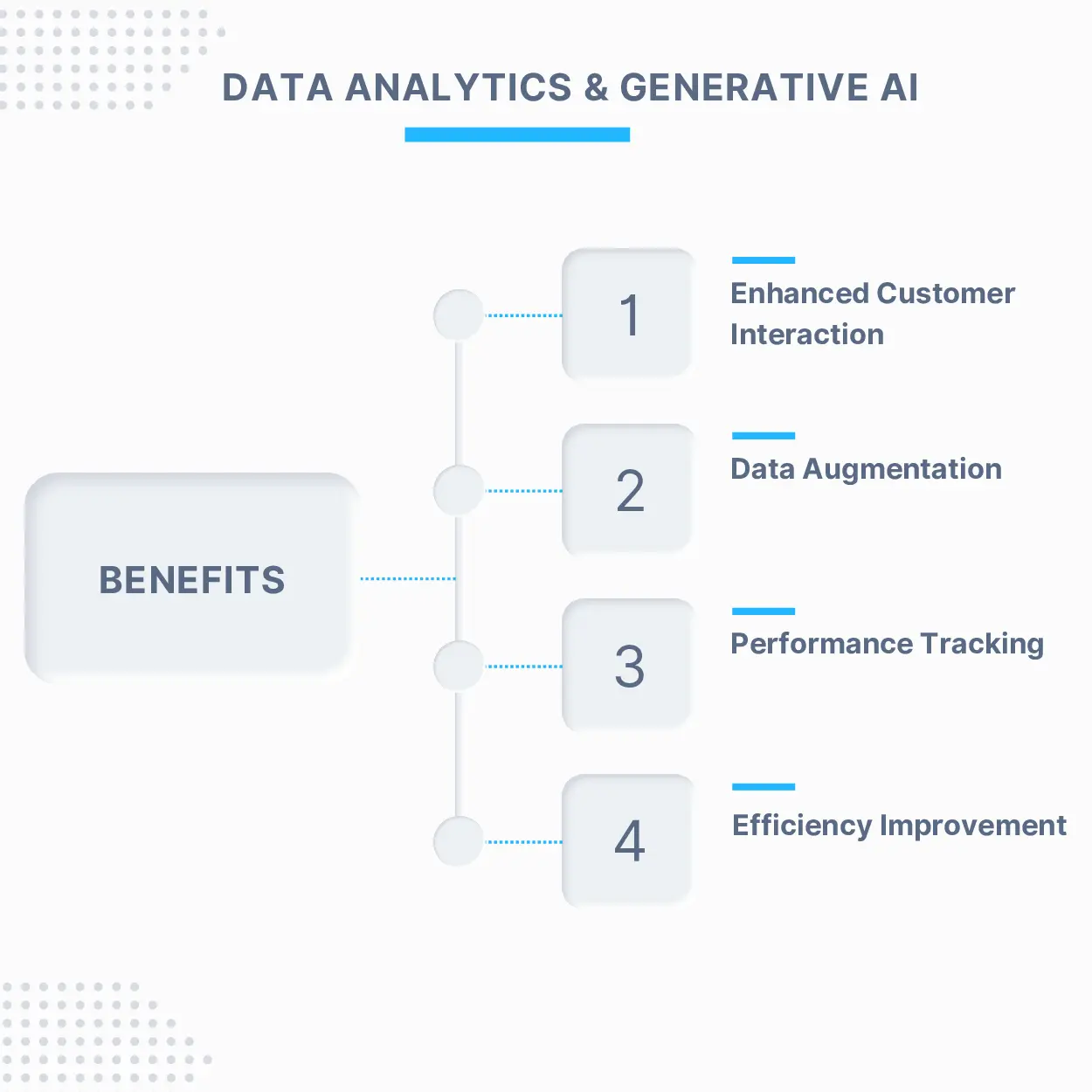
Career Opportunities after this course
-
AI Engineer
-
AI Specialist
-
Automation Specialist
-
Business Analyst
-
Business Intelligence Analyst
-
Consultant
-
Data Analyst
-
Data Scientist
-
Data Visualisation Specialist
-
NLP Engineer
-
Python Developer
-
SQL Developer
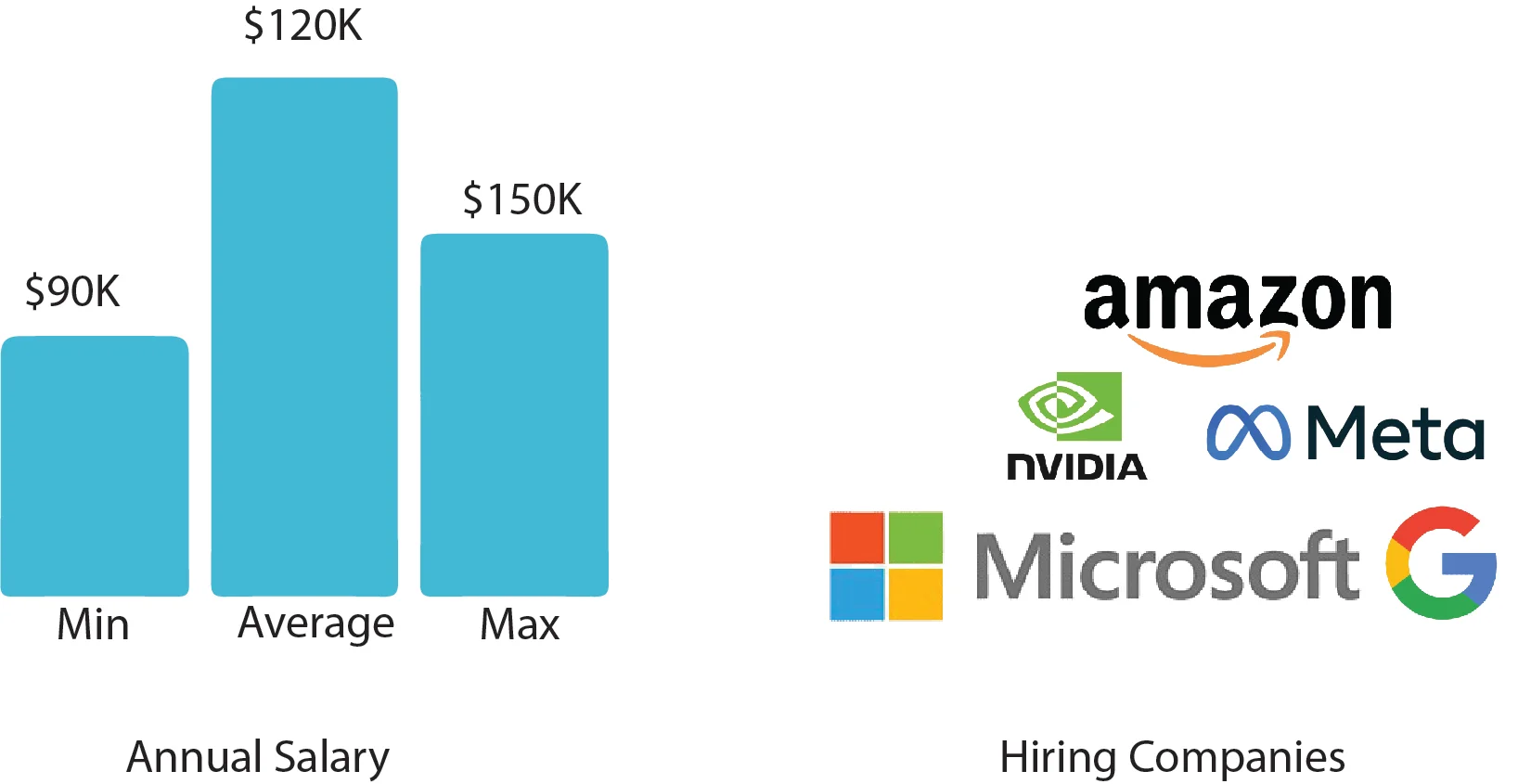
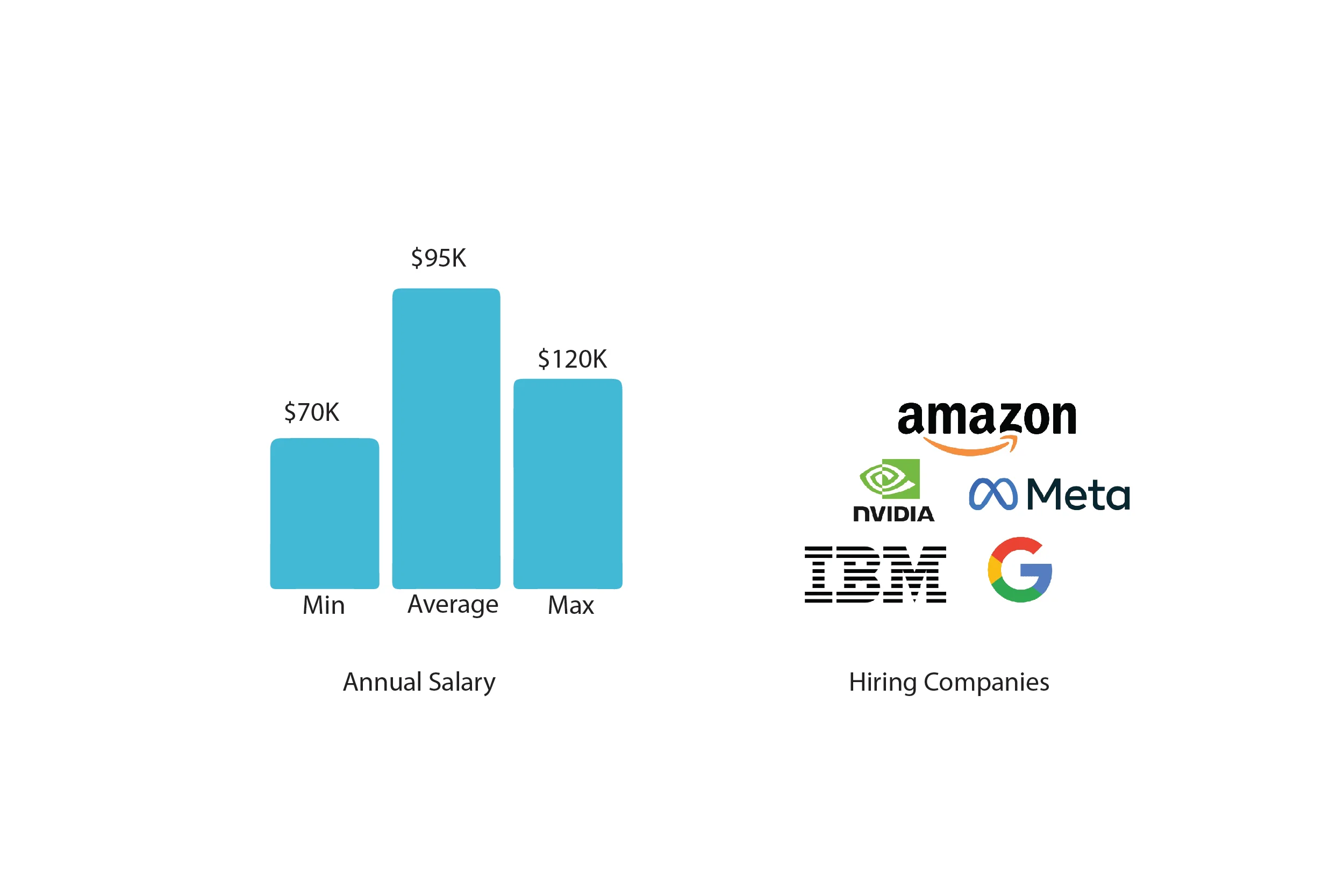
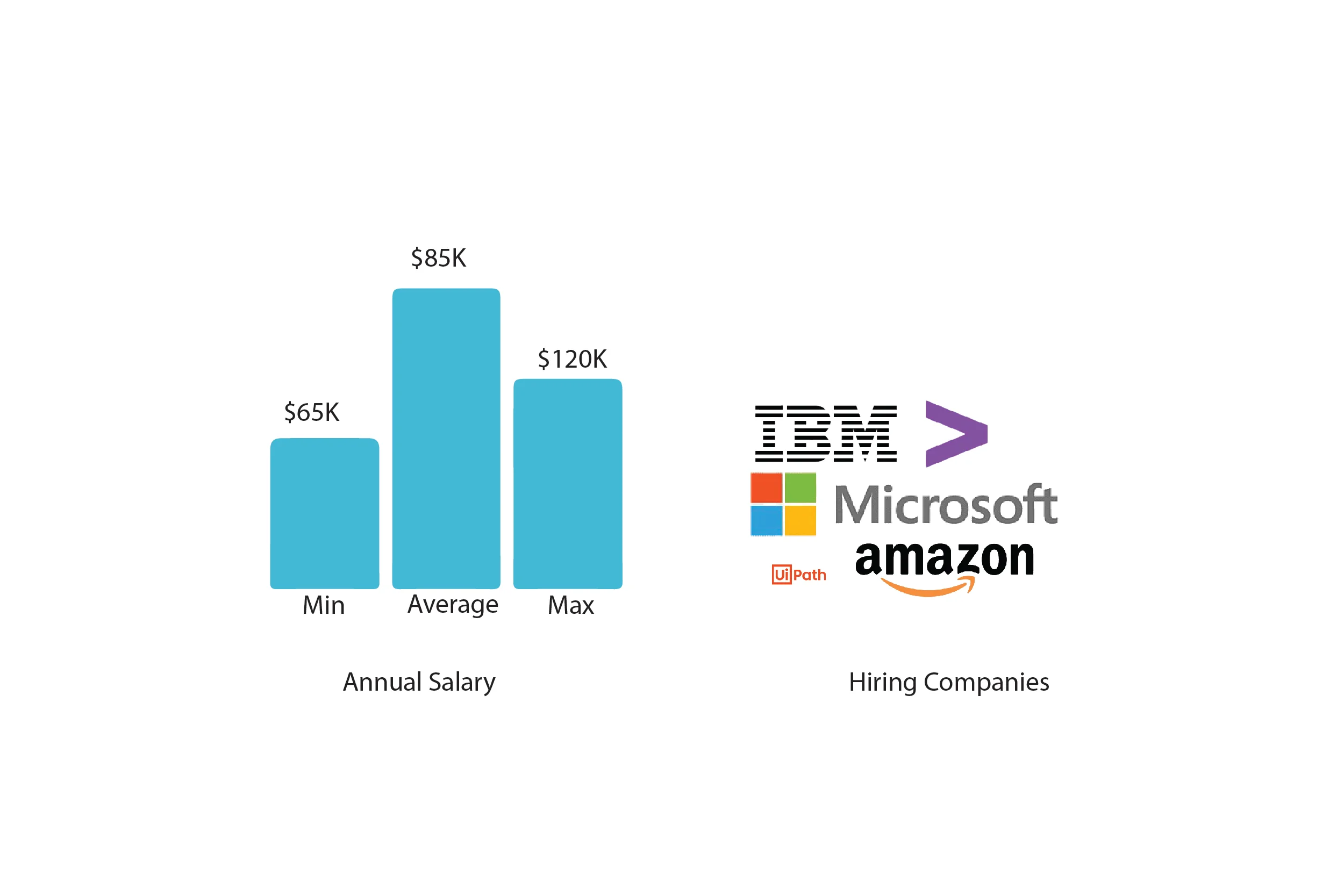


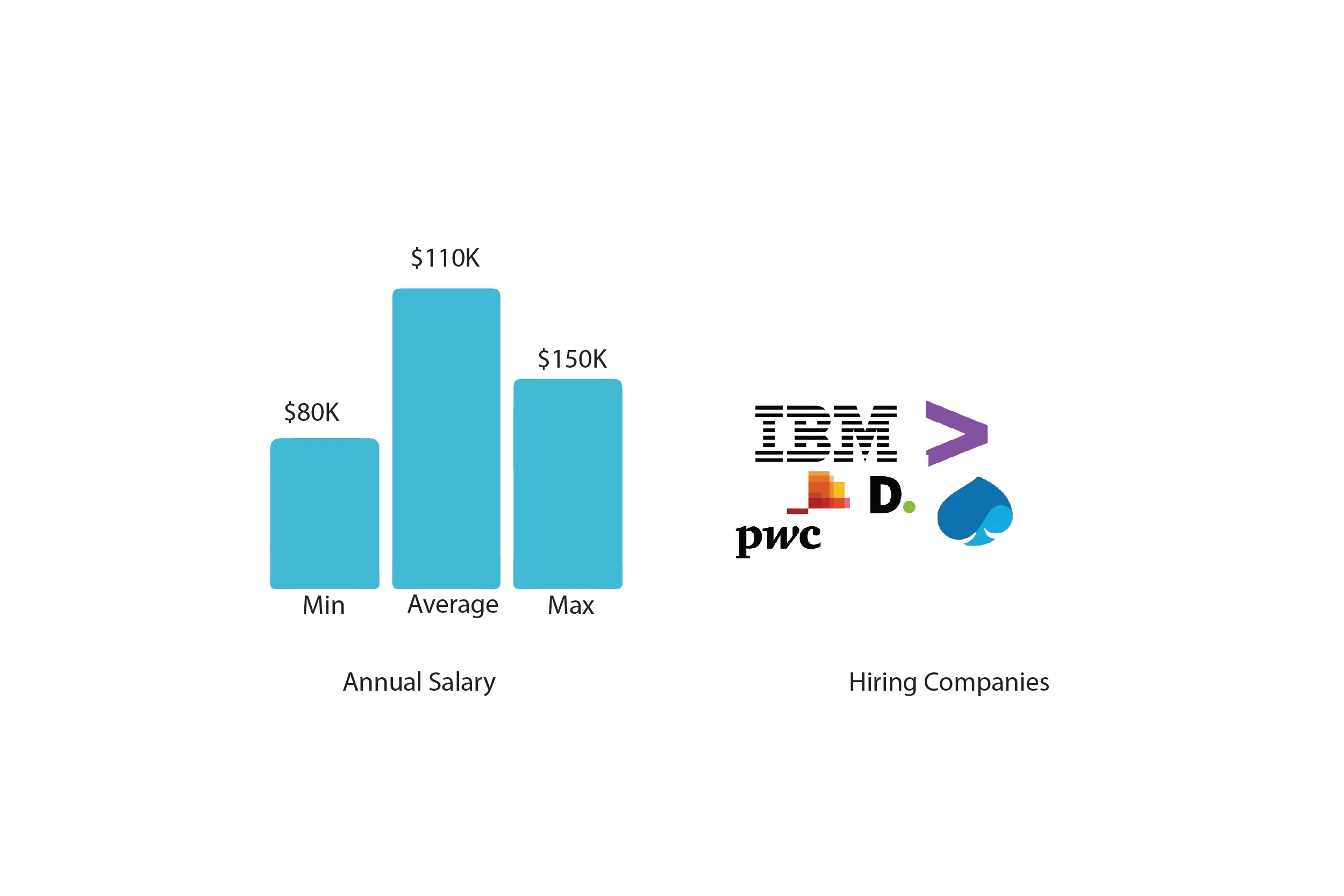

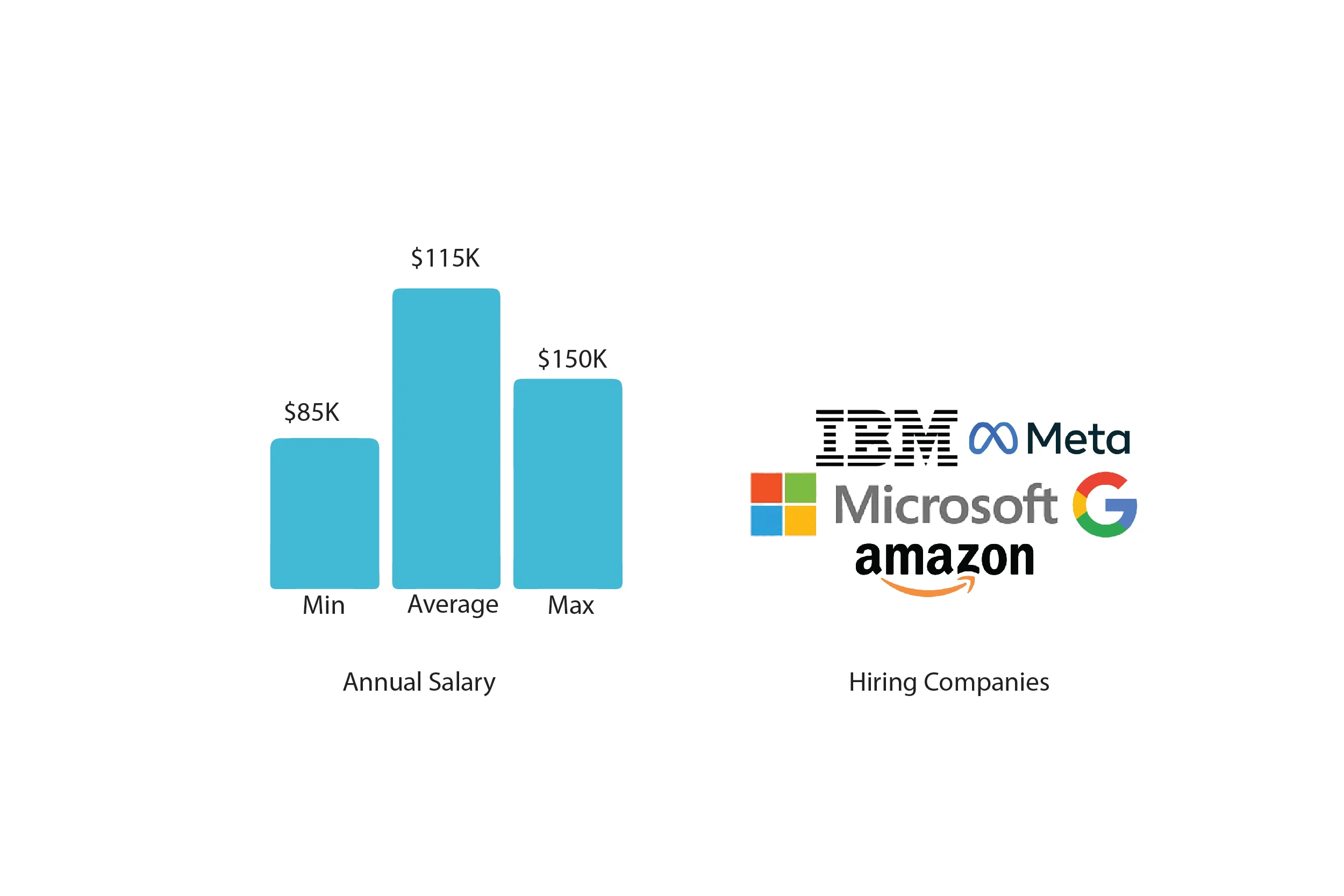
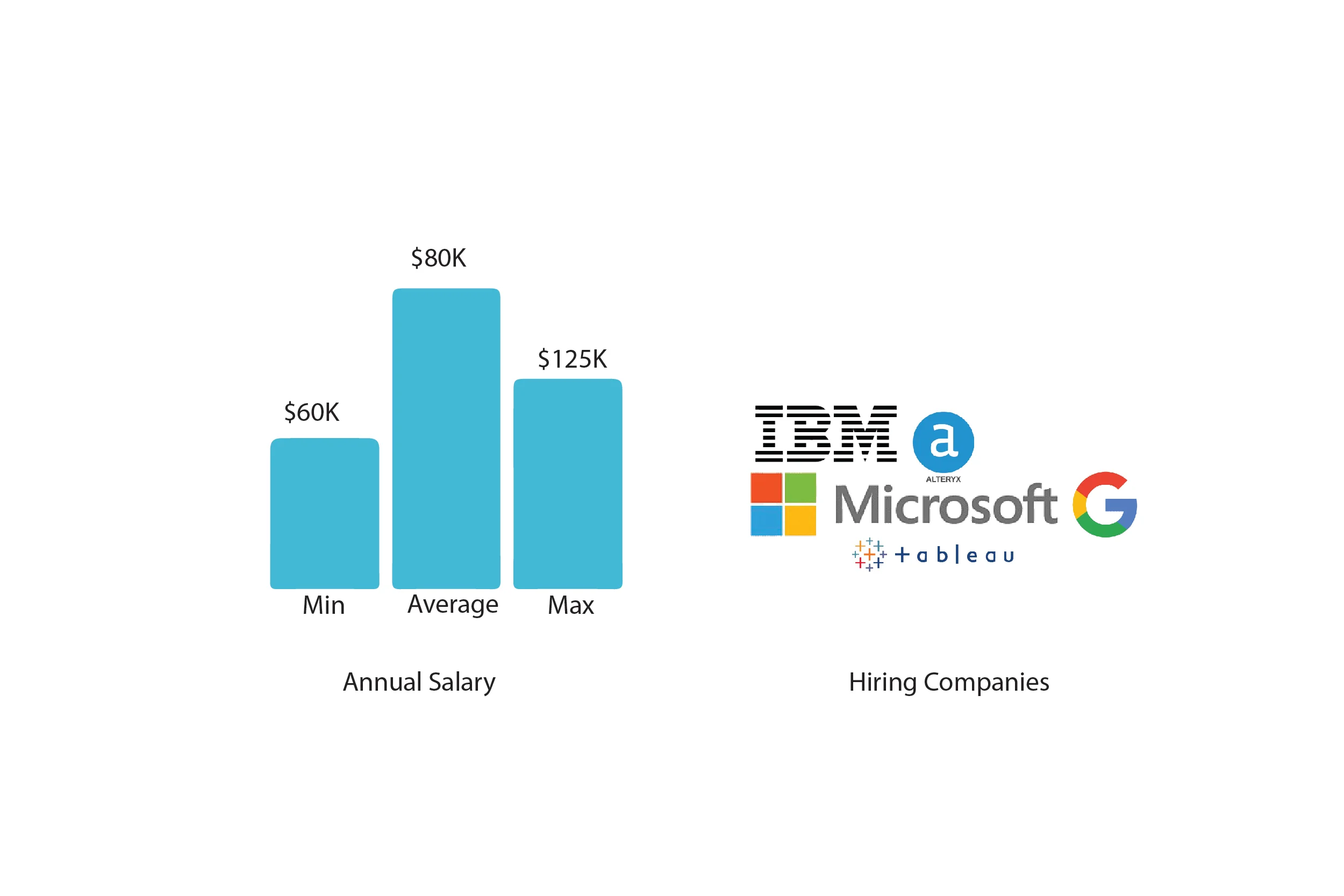
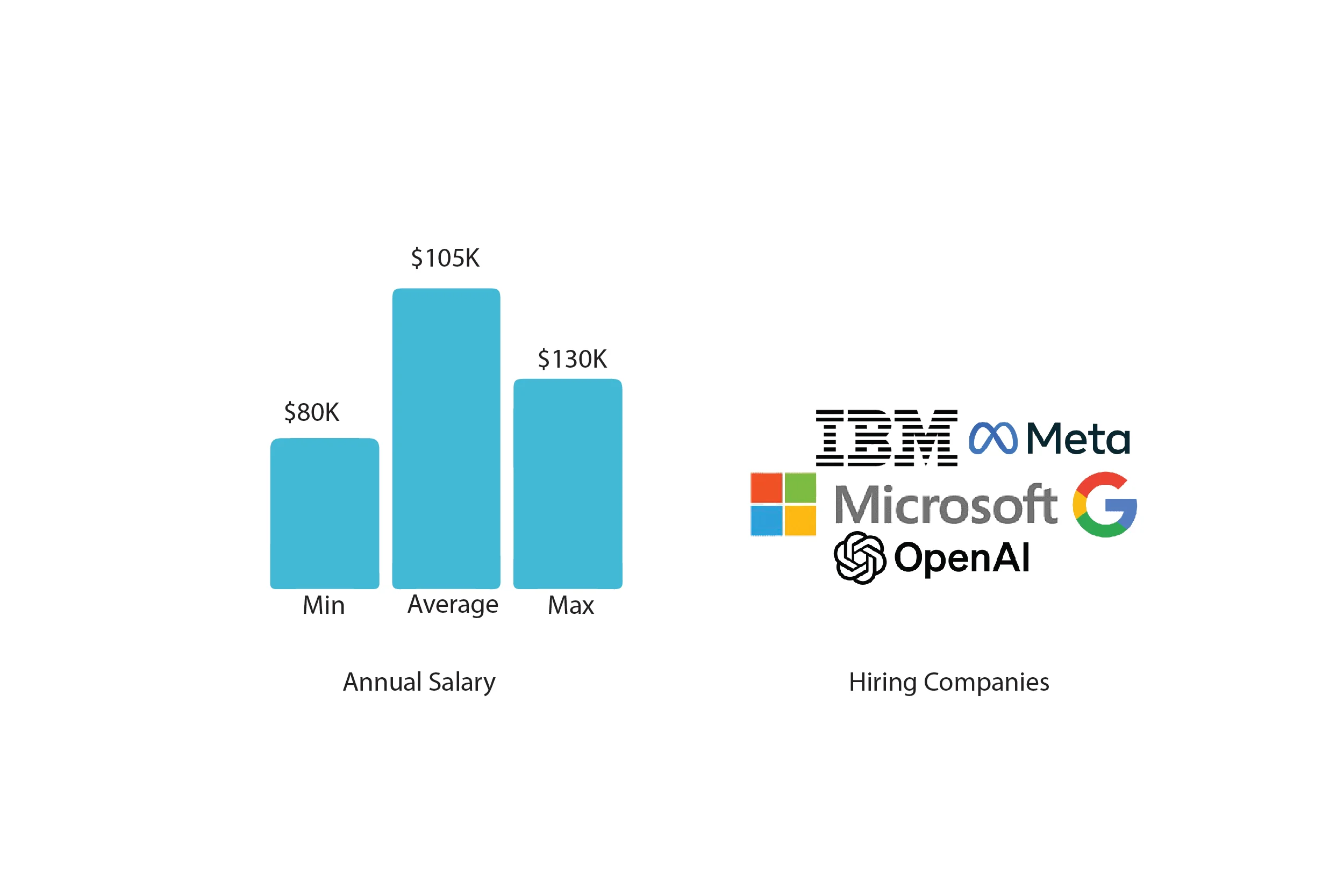
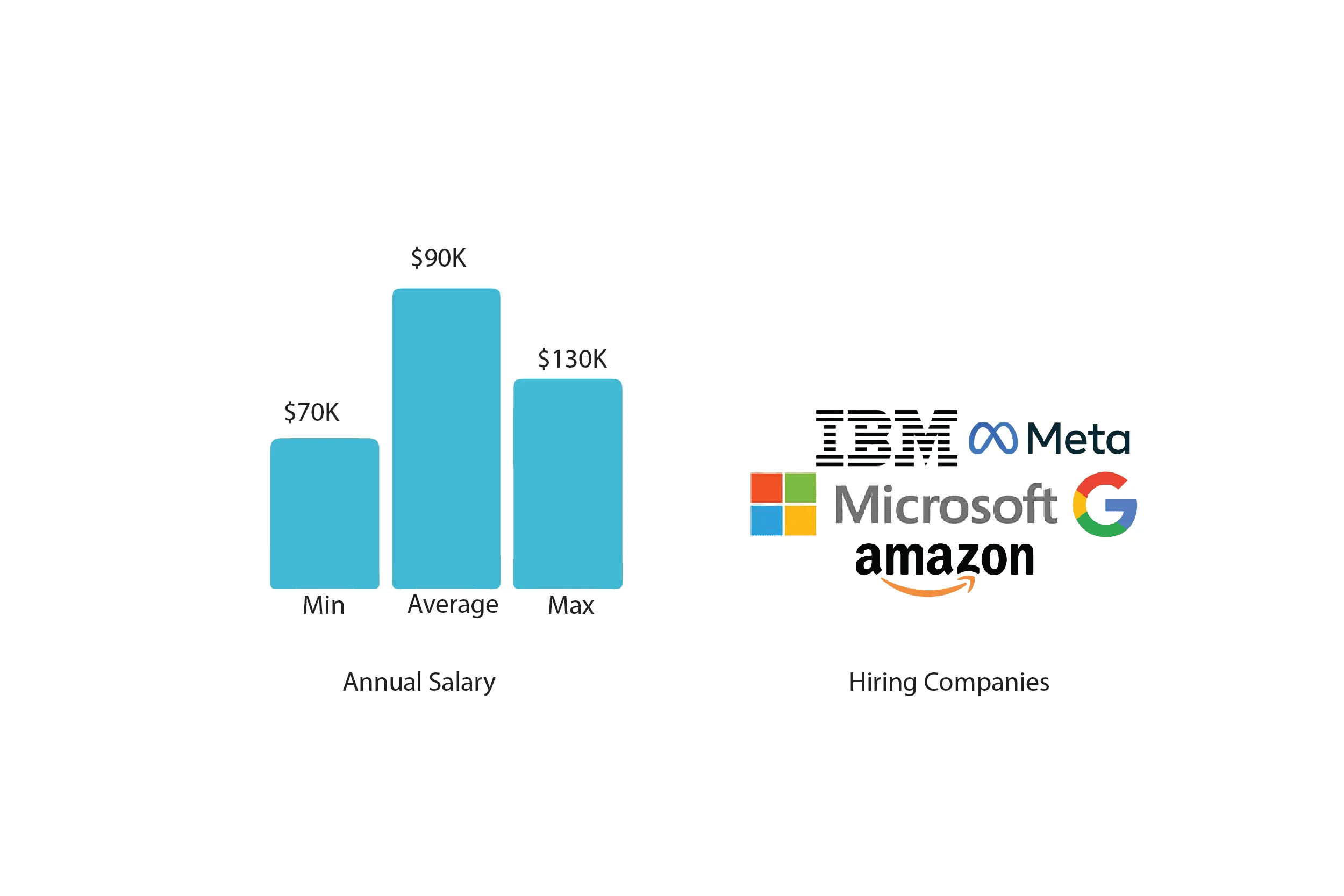

Projects that you will Work On
Practice Essential Tools
Designed By Industry Experts
Get Real-world Experience
Job Obligation after this course
We can apply for jobs in
Companies Hiring for this course

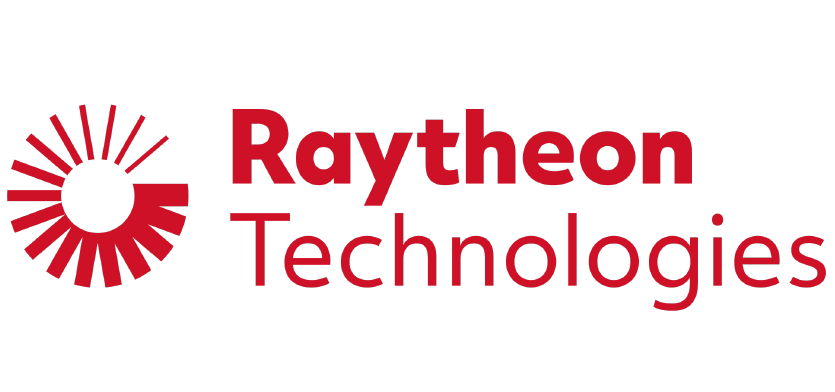
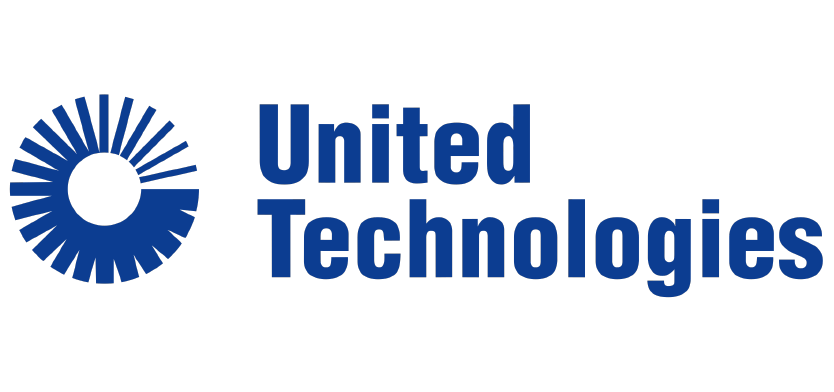


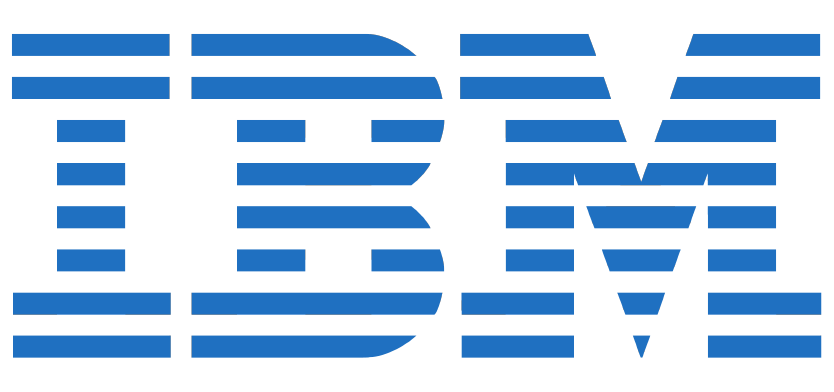
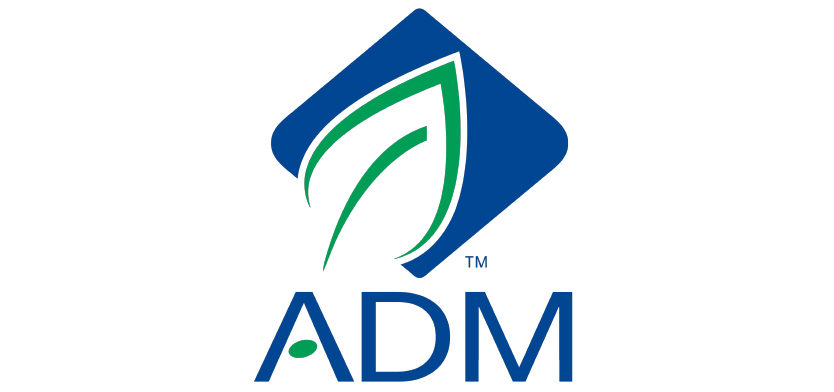






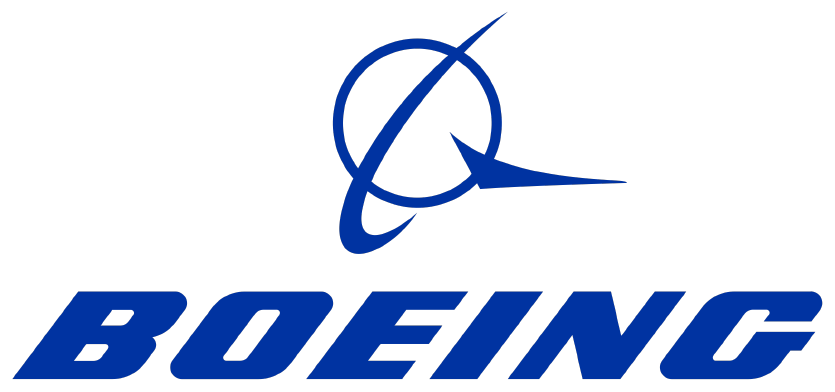
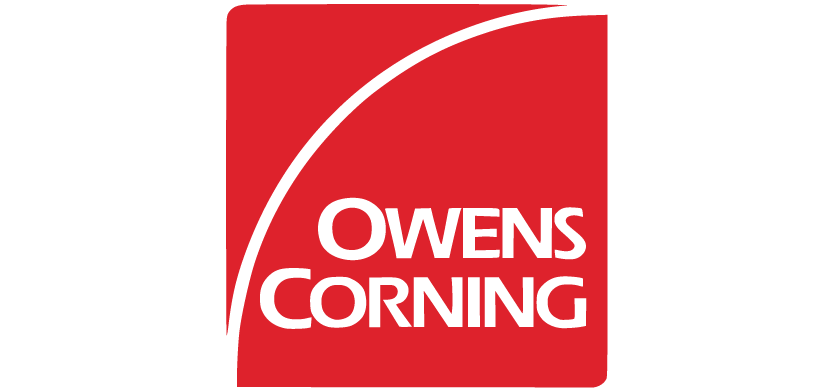

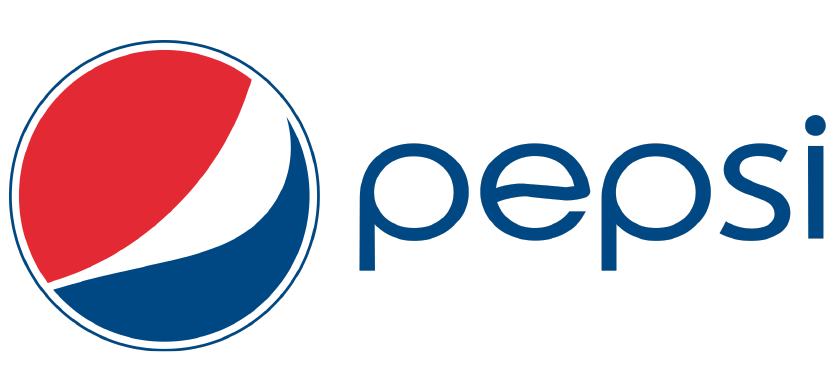


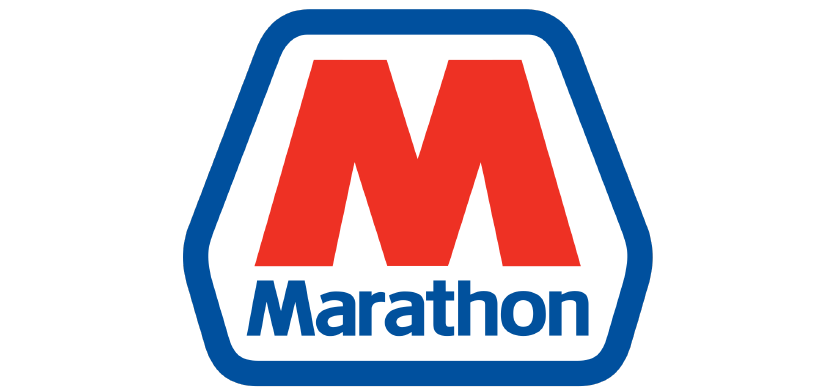
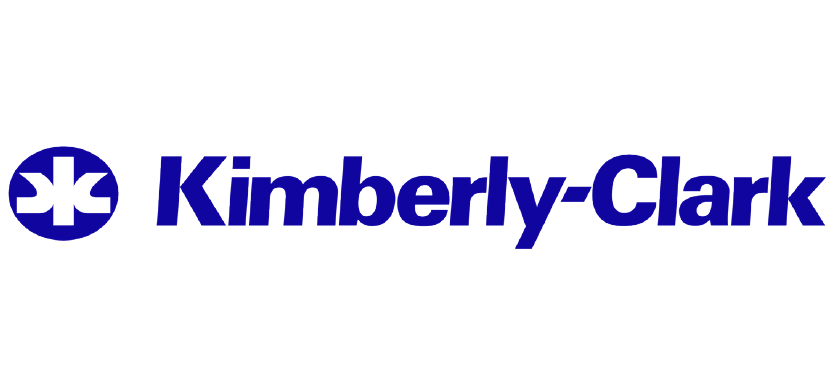
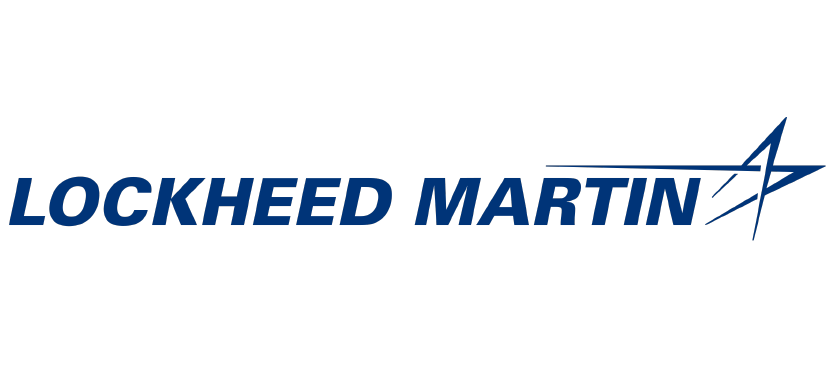


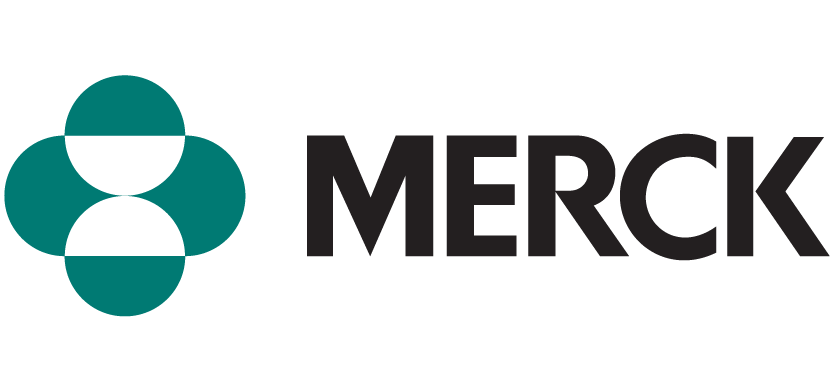

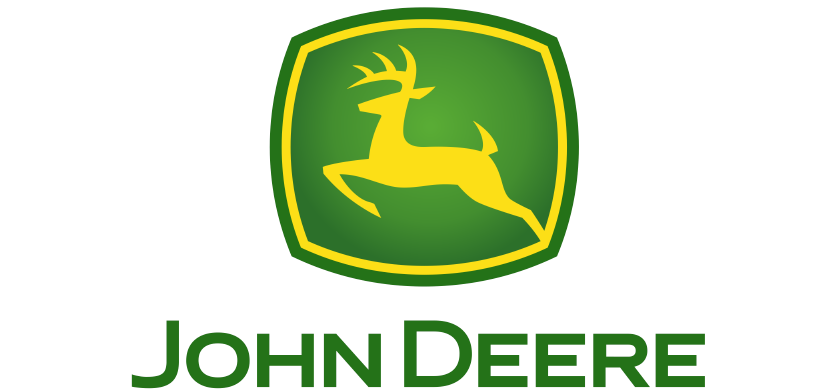

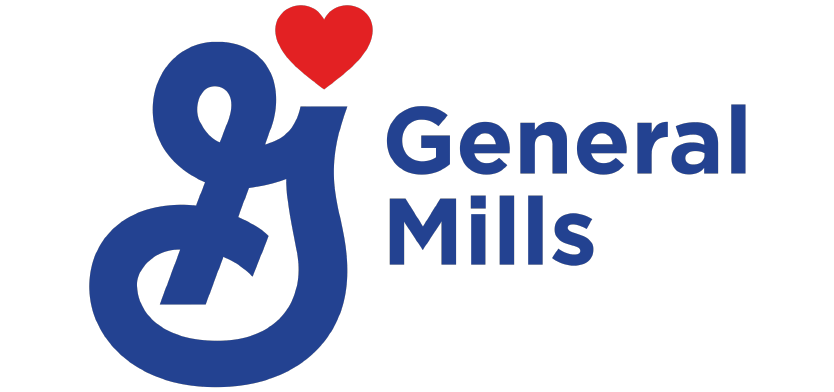

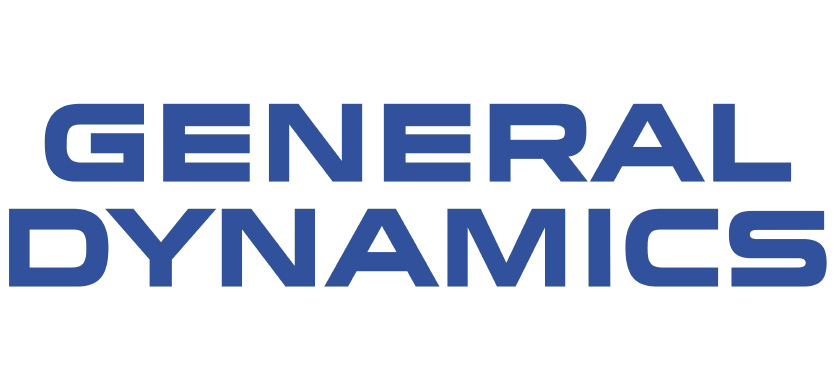














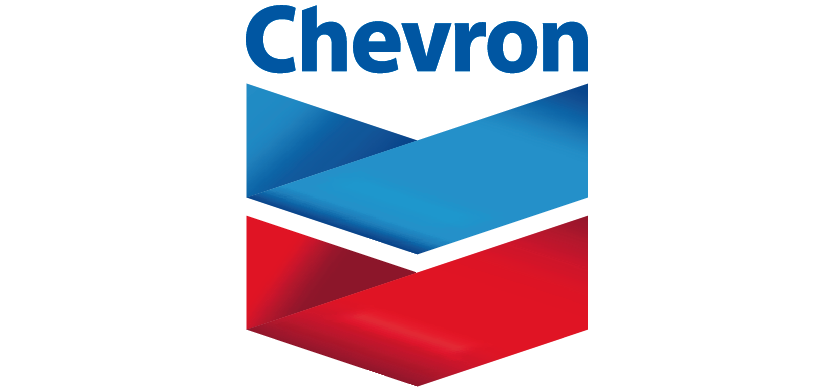


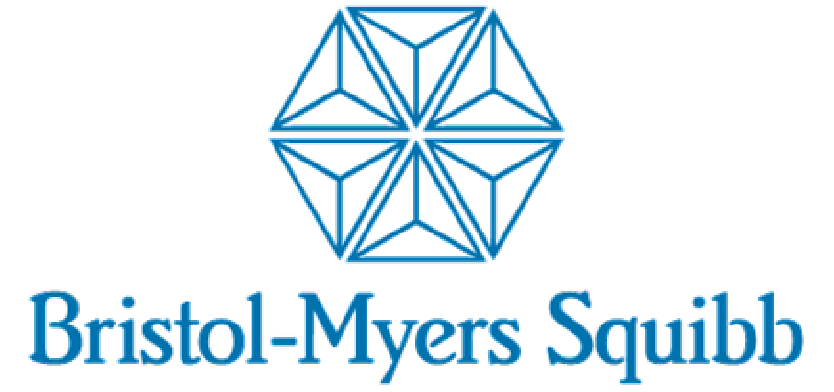
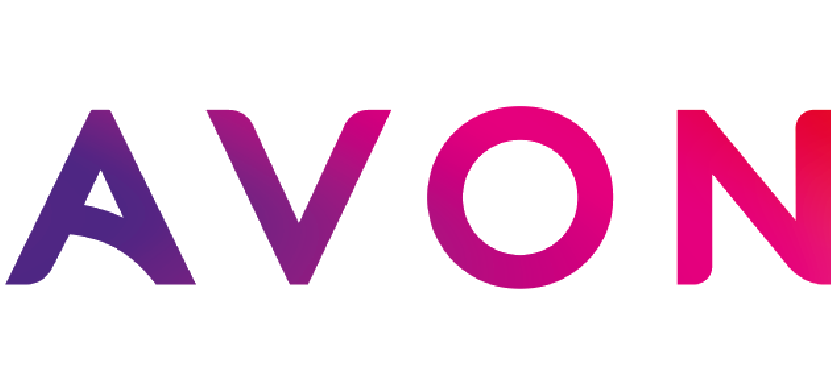

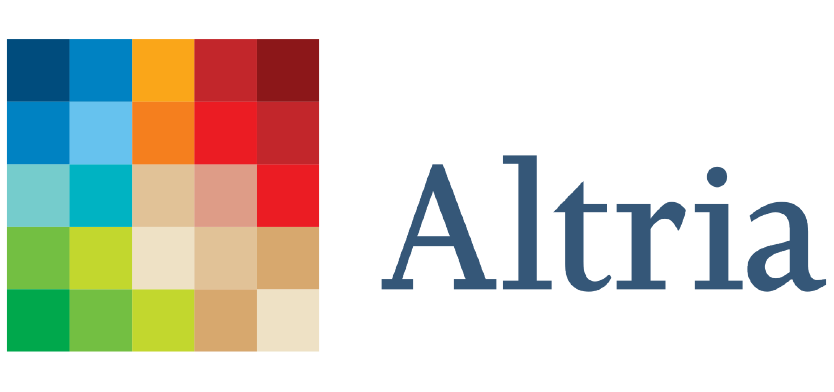


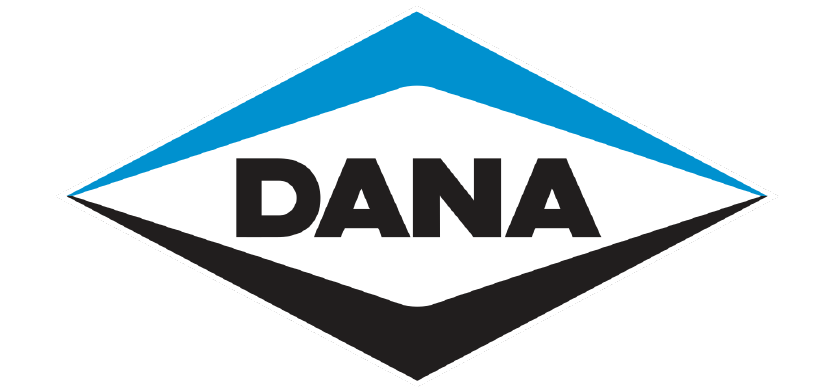
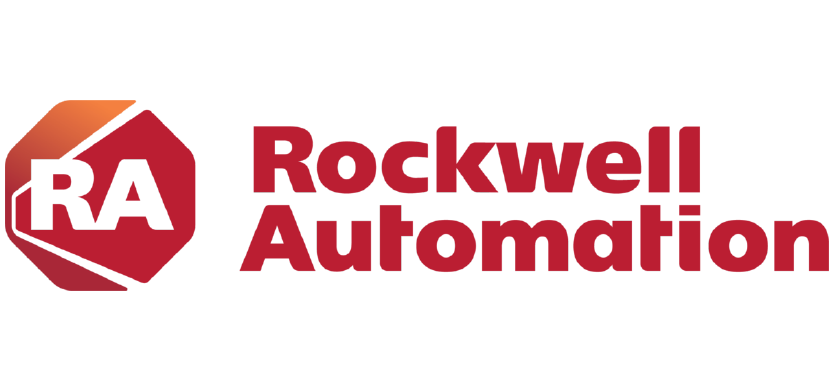

Program Advisors
IITs
IIMs
NITs
Experts from the IT Industries.
Admission Details
The application process consists of three simple steps. An offer of admission will be made to selected candidates based on the feedback from the interview panel. The selected candidates will be notified over email and phone, and they can block their seats through the payment of the admission fee.

Course Fees & Financing
Course Fees
(50% OFF upto 31ˢᵗ March)
(Inclusive Of All Taxes)
Payment Partners
We partnered with financing companies to provide competitive finance option at 0% interest rate with no hidden costs






Upcoming Batches/Program Cohorts
| Batch | Date | Time (IST) | Batch Type |
|---|---|---|---|
| Online Live Instructor Led Session | 7th Sept 2025 | 9 PM to 12 AM | Batch 1 |
| Online Live Instructor Led Session | 14th Sept 2025 | 9 PM to 12 AM | Batch 2 |
Comparison with Others
| Feature | Generative AI Program | Competitor A | Competitor B | Competitor C |
|---|---|---|---|---|
| Tools Covered | Advanced Robotics, Quantum Computing, Python, TensorFlow, and cutting-edge AI tools like GPT-4, StyleGAN, Neural Architecture Search | Primarily includes Robotic Process Automation, Python, and TensorFlow, with limited advanced AI tools | Deep Learning, Basic StyleGAN, Limited Computer Vision | Deep Learning, Computer Vision, Basic Reinforcement Learning |
| AI Focus | Intensive focus on next-gen AI technologies and applications | Basic AI concepts, with limited next-gen focus | Advanced AI techniques, Basic Computer Vision | Applied AI techniques, Advanced Computer Vision |
| Real-World Application | Innovative projects that integrate AI technologies to address cutting-edge industry challenges | Projects often focus on automation with limited AI application | Some real-world projects with a focus on computer vision | Industry-focused projects with advanced AI solutions |
| Expert-Led Instruction | Courses led by top experts in robotics, quantum computing, and AI | Instructors with a focus on automation and basic AI | Industry specialists in deep learning | Experienced AI practitioners and researchers |
| Career Opportunities | Prepares students for cutting-edge roles, including AI Researcher, Robotics Engineer, Quantum Computing Specialist, and Advanced Data Scientist | Typically prepares students for automation and basic data science roles | Provides some career advancement | Focused career paths in advanced AI fields |
| Future-Proof Skills | Cutting-edge AI and robotics skills ensuring adaptability to future technological advancements | Focuses on current technologies, with limited future-proofing | Some focus on emerging AI technologies | Advanced future technologies and AI applications |
| Cross-Industry Relevance | Skills relevant across multiple sectors, including technology, finance, healthcare, and advanced research | Skills are more niche with limited cross-industry application | Some cross-industry applications | Sector-specific expertise |
| Networking Opportunities | Extensive networking with top experts in robotics, AI, and quantum computing | Networking is typically limited to automation professionals | Some networking with AI experts | Limited networking opportunities in advanced AI fields |
| Investment Value | High return on investment due to integration of cutting-edge technologies and industry relevance | Moderate value with a focus on automation and basic data science | Provides good value for advanced AI careers | Basic investment value with a focus on specific sectors |
Data Analytics & Generative AI Program Training Faqs
Data analytics: Methods for gathering, processing, and analyzing data are called data analytics.
Statistical Analysis: Advanced techniques for deciphering data trends are known as statistical analysis.
Machine Learning: Model building for predictions.
Generative AI: GANs and transformer models are studied in generative AI in order to produce fresh data.
Deep Learning: Analytics and generative tasks using neural networks.
Programming Language: TensorFlow, PyTorch, R, and Python are programming languages.
Data visualization: is the process of giving data meaningful visual representations.
Real-World Projects: Useful, practical undertakings.
Entry-level: 8-15 lakhs per annum
Mid-level: 15-30 lakhs per annum
Senior-level: 30+ lakhs per annum
1, we will optimise linked in profile and the algorithm of linkedin profile
2, We will conduct GITHUB and Kaggle sessions
3,We will do multiple Hackathons and guide you in problem solving skills for the interview process
4, We will ensure peer learning session are being conducted
5, We will issue mini certification for every tools.
6,We will asign you a personal mentor on pre booking i’t a one one session.


